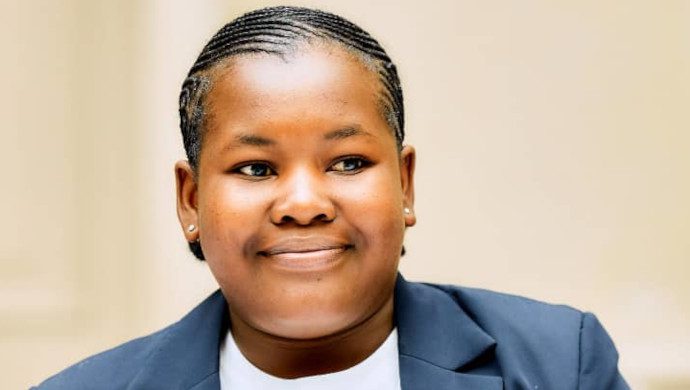Copenhagen, 10 May 2005: During two days of unusually frank and open dialogue between senior officials of Liberias transitional government and the war-torn West African countrys partners, which ended here today, fighting corruption emerged as a central theme, according to a press release from the Nordic Office of the UNDP.
Co-organized by the UN and the World Bank, the Liberia Results Focused Transitional Framework Annual Technical Meeting brought together representatives of the National Transitional Government of Liberia, donor countries, international financial institutions, UN agencies, regional organizations, and civil society organizations to review Liberias changing needs and priorities after its 14-year civil war.
Noting that momentum around Liberias transition has been shaken recently, Poul Grosen, Director of the UNDP Nordic Office in Copenhagen, said, that “Persistent concerns about the preparations for the upcoming elections, reintegration strategy, funding shortfalls, and, widespread allegations of corruption and malfeasance have slanted discussions somewhat in the last weeks.”
While participants acknowledged that some progress has been made, they encouraged Liberias transitional government to do more to punish corrupt officials and combat corruption, including instituting sound financial management systems characterized by accountability and transparency.
These steps, they said, will enhance the transitional governments credibility among the Liberian people as they prepare for October 2005 national elections and help create a sound business climate crucial to attracting investments and creating jobs.
According to Mats Karlsson, World Bank Country Director for Ghana, Liberia and Sierra Leone, effective economic governance is the key constraint to sustain peace and development. – We should not end up saying in six months from now that it was just a show of words in Copenhagen. Immediate action to address core economic government functions is imperative to follow this meeting, he said.
– This issue is not just Liberian but African and global, said Steven Ursino, UNDP Liberia Country Director adding: – The question of corruption is also a capacity issue, and UNDP would very much like to be involved and offer its advice and guidance in this regard.
Ursino explained that the National Transitional Government of Liberia has established an Anti-Corruption Task Force that is empowered to investigate any credible allegation of corruption in the public sector and has undertaken other critical measures to strengthen its economic and financial management capacity.
Participants agreed that fostering sustainable livelihoods, responding to the development needs of communities and building infrastructure should also be priorities in Liberia where the unemployment rate hovers at about 85 percent.
– The elections are the good part of the Liberian story. The difficult part of the story is the need to restructure the Liberian army and provide schooling, clinics, roads and basic services enabling both internally displaced people and ex-combatants to return to their rural counties, said Christian Herbert, Minister of Planning and Economic Affairs in the National Transitional Government of Liberia.
– The risk of in-action to address these needs will place the whole peace process in jeopardy, he added.
The Annual Technical Meeting took place at a crucial moment as Liberia works to ensure lasting peace. In April 2005, the country launched a voter registration drive ahead of landmark elections during which citizens will elect a president, vice-president, and members of the Senate and House of Representatives.
The framework, which highlights Liberias priority needs, was developed in January 2004 following a joint World Bank-UNDP needs assessment and served as the basis for nearly 500 million US dollar in new humanitarian and reconstruction assistance donor pledges at a global conference in New York the following month.
During the Copenhagen meeting, the National Transitional Government of Liberia briefed delegations on the countrys achievements over the past year and presented an updated framework which was the result of extensive consultations among Liberians.
Participants agreed to extend the framework and to work towards a poverty reduction strategy for Liberia rooted in human rights and the eight Millennium Development Goals agreed to by world leaders in 2000.
UNDP is helping Liberia during its delicate transition. For example, UNDP provides technical support to coordinate the disarmament and demobilization of former combatants.
At the same time, it offers vital assistance to the government as it seeks to establish a comprehensive national reconstruction plan, including rebuilding the health, education and water infrastructure destroyed by the war; technical assistance to bolster the capacity of key government ministries; and funding for rehabilitation of office buildings and the purchase of vehicles and office equipment.
UNDP is also bolstering preparations for the national elections by teaching Liberians how to vote through a new civic education programme.
For more information, contact In Copenhagen: Christine Drud, Communications Officer, UNDP: 35467154; 29452320; e-mail: [email protected]
For more information on UNDPs work in Liberia, visit: www.lr.undp.org/
For more information on UNDPs work in Africa, visit: www.undp.org/regions/africa/
UNDP on UNDP
UNDP is the United Nations worldwide development network. It advocates change and provides countries with access to the knowledge, skills and resources their populations need to improve their lives.














